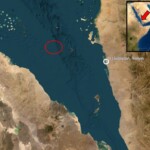Israel’s security cabinet was set to convene Thursday to vote on a proposal to authorize Israeli Prime Minister Benjamin Netanyahu and Defense Minister Yoav Gallant to determine the country’s response to last week’s Iranian missile attack.
Jerusalem has vowed a significant retaliation for Tehran’s second-ever direct attack on the Jewish state, in which more than 180 ballistic missiles were fired in two waves on the evening of Oct. 1.
The Israeli military, with the assistance of the United States and Jordan, shot down most of the missiles, with the sole casualty of the attack being a Palestinian man from Gaza who was struck by missile debris near Jericho in the Jordan Valley.
On Wednesday, Gallant said Israel’s response “will be powerful, precise and above all — surprising,” adding that the Islamic Regime “will not understand what happened and how it happened.”
Speaking during a visit to Unit 9900 of the IDF’s Intelligence Directorate, which is responsible for gathering visual intelligence, Gallant also said that while the Iranian attack had been “aggressive,” the missiles “failed because they were not precise.”
He continued: “The air force was unharmed — all the runways are operational, our activities are ongoing, not a single aircraft was damaged, not a single soldier or civilian was harmed.”
On the other hand, he said, “When we look at your abilities, the abilities of the IDF, of the Intelligence Directorate, of the air force and the entire [security] establishment — you are accurate and powerful. As we have shown until now in this war and in all arenas: Whoever attacks Israel will pay a price.”
Also on Wednesday, Netanyahu and US President Biden held their first conversation since Aug. 21.
Vice President Kamala Harris, the Democratic nominee for president, joined the two on the call, during which Biden “affirmed his ironclad commitment to Israel’s security” and “condemned unequivocally Iran’s ballistic missile attack against Israel on Oct. 1,” according to a White House readout of the conversation.






